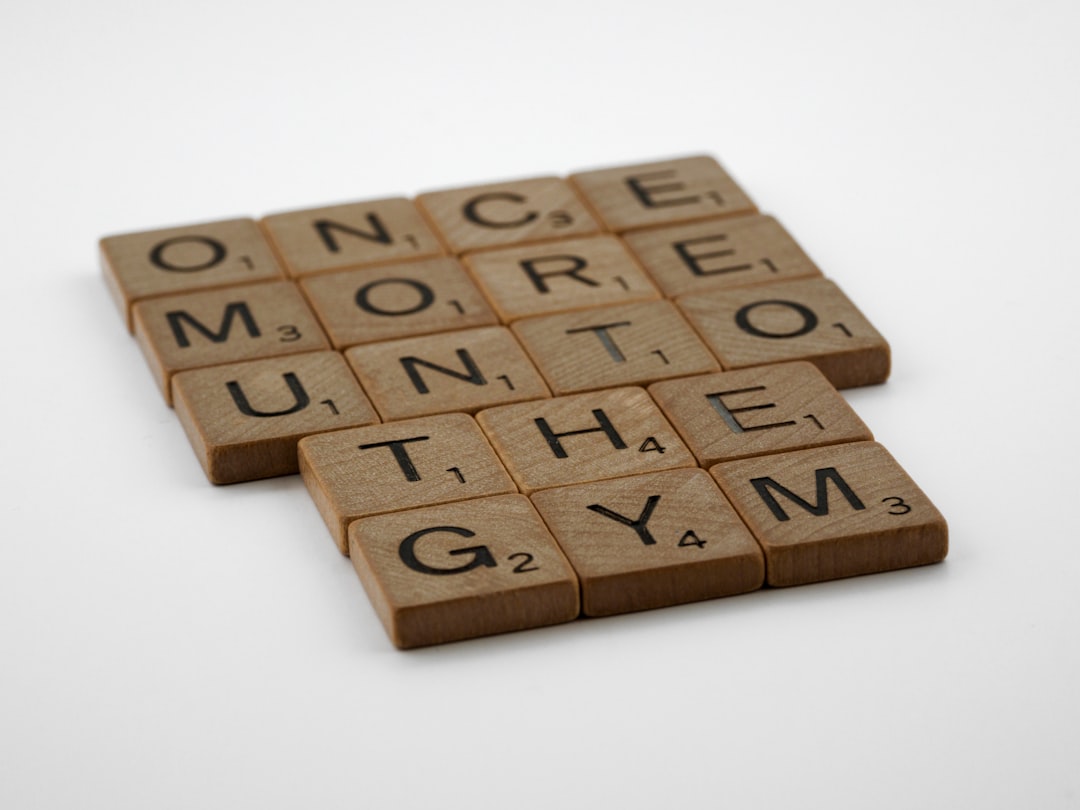Are you investing in home gym equipment and wondering if you can enjoy some tax deductions as a result? You’re not alone.
Many fitness enthusiasts and home workout aficionados are curious about this potential financial perk. After all, saving money while staying fit sounds like a win-win situation, doesn’t it? Picture yourself not only achieving your fitness goals but also receiving a little extra back during tax season.
Intrigued? Let’s dive into the ins and outs of whether your home gym investments can lighten your tax load, ensuring you’re not missing out on any potential savings. Keep reading to uncover the truth and make the most of your fitness and financial journey.
Tax Deduction Basics
Understanding tax deduction basics can be quite helpful. These deductions reduce your taxable income. This means you pay less in taxes. But not all expenses qualify. Knowing which expenses qualify is crucial.
What Is A Tax Deduction?
A tax deduction lowers your taxable income. It’s different from a tax credit. A deduction reduces how much income gets taxed. This can mean paying less at tax time. Deductions vary by country and region.
Eligibility For Tax Deductions
Not everyone qualifies for deductions. Specific rules determine eligibility. For instance, business expenses are often deductible. Personal expenses usually aren’t. Knowing the difference is key.
Common Deductible Expenses
Common deductible expenses include business costs. Travel for work can be deductible. Office supplies and equipment might qualify. Keep records for proof.
Understanding Home Gym Equipment Deductions
Home gym equipment is usually a personal expense. This means it’s not deductible. Exceptions may exist for business use. Consult a tax professional for advice.
Record Keeping For Deductions
Good records make deductions easier. Keep receipts and documentation. This helps if audited by tax authorities. Organized records save time.
Qualifying For Deductions
Are you considering whether your home gym equipment can be tax deductible? Understanding the criteria for qualifying for deductions can help you make informed decisions. From business use to medical necessity, there are specific pathways that might allow you to claim deductions. Let’s explore them.
Business Use Criteria
Do you run a fitness-related business? If your home gym equipment is essential for your business operations, it might qualify for deductions. Imagine you’re a personal trainer who conducts virtual sessions. Your gym setup is crucial for demonstrating exercises and maintaining your fitness level. In such cases, equipment used solely for business purposes may be deductible.
Keep detailed records of how the equipment is used in your business. Document hours of use and any income generated from activities involving the equipment. This ensures clarity and strengthens your claim during tax filing.
Medical Necessity
Have you ever wondered if health recommendations could qualify your gym equipment for deductions? If a doctor prescribes exercise as part of your treatment, it opens possibilities for deductions. Let’s say you have a medical condition that requires regular physical activity, and your doctor advises specific equipment to manage it.
You’ll need a written prescription or recommendation from a healthcare provider. This document supports your claim and proves the equipment is necessary for your health. Keep it handy with your tax paperwork to avoid complications.
Understanding these criteria can be a game changer. Could maximizing these deductions make a difference in your financial planning? Consider your circumstances and consult a tax professional to explore your options.
Home Gym Equipment Eligibility
Many fitness enthusiasts ponder whether home gym equipment is tax deductible. Understanding eligibility is crucial for those seeking tax deductions. The IRS offers specific guidelines for health-related deductions. Determining eligibility involves assessing types of equipment and specific conditions. This section explores these aspects.
Types Of Equipment
Not all gym equipment qualifies for deductions. Generally, equipment must serve a medical purpose. This includes items prescribed by a healthcare professional. Common examples are treadmills for heart health, or weights for muscle recovery. Equipment used for general fitness may not qualify. Eligibility depends on the equipment’s intended purpose.
Specific Conditions
Eligibility requires meeting specific medical conditions. A doctor’s recommendation is often necessary. The equipment must address a particular health issue. This can include obesity, heart conditions, or physical therapy needs. Documentation from a medical professional strengthens your claim. This ensures the equipment is used for health improvement.
Filing Requirements
Understanding filing requirements is crucial for tax deductions on home gym equipment. The IRS has specific rules and documentation needed for such deductions. You must ensure all paperwork is precise and complete. This helps in avoiding issues during the tax filing process.
Required Documentation
Gather all receipts related to your home gym purchases. Keep records of the equipment’s cost, purchase date, and vendor information. Documentation should also include any maintenance or repair expenses. Store these documents safely for future reference.
Forms And Schedules
Use the correct forms to report your deductions. For personal use, Form 1040 is essential. If you’re self-employed, consider Schedule C for business expenses. Consult with a tax professional for accurate filing.
Potential Challenges
Many wonder if home gym equipment is tax deductible. The idea of saving money on fitness expenses is appealing. But navigating tax rules poses challenges. Understanding these obstacles is crucial.
Misunderstandings and IRS scrutiny are common hurdles. Let’s explore these challenges in detail.
Common Misconceptions
People often believe home gym equipment is tax deductible. This is not entirely true. Only specific situations allow deductions. For instance, if used for medical purposes. Or if part of a business. Personal use does not qualify. Misunderstanding these rules leads to false claims.
Another misconception involves home office expenses. Some think gym equipment falls under this category. It does not. A home office deduction is strictly for business use. Mixing personal and business expenses creates confusion.
Irs Scrutiny
The IRS closely monitors tax deductions. Incorrect claims draw their attention. Home gym deductions are no exception. Filing inaccurate deductions can lead to audits. This results in penalties or interest charges.
Proper documentation is key. Keep all receipts and records. Ensure any claims meet IRS criteria. Without this, deductions become risky. The IRS requires clear evidence of eligibility. Failing to provide this evidence invites scrutiny. Stay informed to avoid these issues.
Maximizing Your Refund
Home gym equipment may be tax deductible if used for medical reasons. Consult a tax professional for eligibility. Understanding deductions can help in maximizing your refund.
Maximizing your tax refund can feel like winning a small lottery. Every dollar counts, especially when you’ve invested in your health with home gym equipment. But can these purchases help you save on taxes? Let’s unravel the potential for deductions and strategies to enhance your refund.Strategic Planning
Understanding tax deductions begins with strategic planning. Are you using your home gym equipment for business purposes, like training clients or creating fitness content? This could potentially qualify your purchases as a business expense. Consider documenting your usage. Keeping a detailed log can be invaluable. It shows the IRS that your equipment isn’t just for personal use. Thinking ahead is crucial. If you plan to claim deductions, ensure your home gym space meets the IRS requirements for a business use of home deduction. Is it a dedicated area used exclusively for business?Professional Advice
Seeking professional advice can be a game-changer. A tax professional can help you navigate complex tax laws and identify deductions you might overlook. Imagine the peace of mind knowing your tax return is optimized. A tax advisor ensures you’re not leaving money on the table. When I consulted a tax expert, they pointed out deductions I hadn’t considered. This small step maximized my refund significantly. Have you consulted with a professional yet? Are there other expenses related to your home gym that could qualify? For instance, electricity or maintenance costs might be deductible if your gym is part of your business. Maximizing your refund is about being informed and proactive. Equip yourself with the right knowledge and advice to make the most of your health investments.Alternative Tax Benefits
Many people wonder if home gym equipment is tax deductible. While it might not be directly deductible, there are alternative tax benefits. These can help save money while maintaining your health.
Health Savings Accounts
Health Savings Accounts (HSAs) offer a way to save on taxes. They allow you to use pre-tax dollars for health-related expenses. Fitness expenses might qualify if prescribed by a doctor. This can include equipment for physical therapy or rehabilitation.
To benefit, you need a high-deductible health plan. Contributions to HSAs are tax-deductible. Withdrawals for qualified medical expenses are tax-free. Keep records of medical recommendations for your gym equipment. This ensures your expenses align with HSA guidelines.
Flexible Spending Accounts
Flexible Spending Accounts (FSAs) also provide tax savings. They let you set aside pre-tax dollars for medical expenses. These accounts cover a wide range of health-related costs.
Like HSAs, FSAs might cover gym equipment with a medical purpose. Items must be necessary for a medical condition. Always have documentation from your doctor. This will support your claim for tax savings.
FSAs differ from HSAs in some ways. Funds in FSAs may not roll over to the next year. Plan your spending to avoid losing your funds.
Frequently Asked Questions
What Is The Most Overlooked Tax Break?
The Saver’s Credit is often overlooked. It allows eligible taxpayers to claim a credit for retirement contributions. It can reduce taxes owed or increase refunds. Many people miss this valuable tax break. Always check eligibility for potential savings.
Is Equipment 100% Tax-deductible?
Equipment can often be 100% tax-deductible under Section 179. Eligibility depends on business type and expenses. Always consult a tax professional for advice. Deduction limits and rules may vary yearly. Proper documentation is essential for claiming deductions.
Can A Treadmill Be A Tax Write-off?
A treadmill can be a tax write-off if used for business purposes or medical reasons. Ensure documentation supports its necessity. Always consult a tax professional for guidance on eligibility and proper filing. Different rules apply based on your jurisdiction. Proper categorization is crucial for a successful deduction.
What Home Items Are Tax-deductible?
Home office expenses, mortgage interest, property taxes, and energy-efficient home improvements are tax-deductible. Consult a tax professional for specific eligibility.
Conclusion
Deciding if home gym equipment qualifies for a tax deduction can be tricky. It depends on several factors. Personal use typically doesn’t count. Business use might offer some benefits. Check with a tax professional for guidance. They can help determine eligibility.
Staying informed is crucial for tax savings. Always keep records of purchases and usage. This ensures clarity during tax season. The right approach might lead to deductions. Fitness and finances can align with proper planning. Consider consulting an expert to explore your options.
Fitness equipment can be an investment. Make it work for you financially too.




